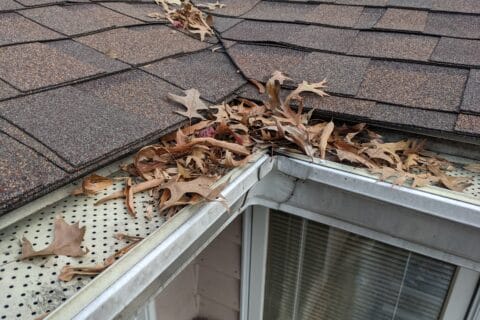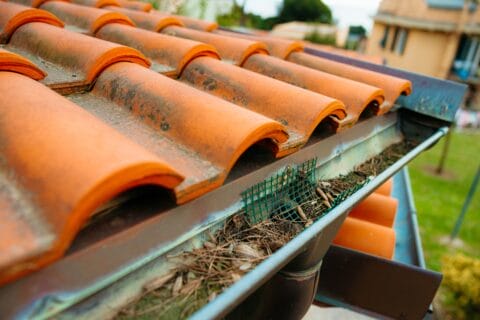How Weather Affects Window Cleaning: A Year-Round Maintenance Guide
 Revised by Bruce Hulse
Revised by Bruce Hulse
Maintaining clean windows is about more than just appearances; it directly impacts your home’s comfort, energy efficiency, and even its resale value. In Ottawa, weather is rarely consistent, with seasons bringing everything from humid summer heatwaves to icy winter snowstorms. Each of these conditions presents its own challenge when it comes to window maintenance. Timing your cleaning around these weather patterns and understanding their effects can dramatically improve results and preserve the condition of both glass and frames.
This comprehensive guide explores how Ottawa’s climate influences window cleaning and offers practical, season-specific strategies to help homeowners make smarter, safer decisions year-round.
How Weather Affects Window Cleaning Outcomes
Ottawa’s varied climate makes window care more than just a routine chore; it’s a strategic process. Rain, sun, wind, humidity, and snow all play a role in how effectively you can clean your windows and how long they stay clean afterward.
The Subtle Damage of Rain
Contrary to what many assume, rain itself doesn’t make your windows dirty. The problem is what it mixes with: pollen, dust, pollution, and grime that’s already settled on the glass or screens. When rainwater meets these contaminants, it forms streaks and water spots that are far more visible once the glass dries. Spring and autumn are rain-heavy in Ottawa, which means cleaning during or immediately before these conditions often backfires.
To avoid this, it’s best to clean windows shortly after a heavy rainfall. At this point, the debris has been loosened, and you’re less likely to waste your effort. Using high-quality tools like a professional-grade squeegee and microfiber cloth can help eliminate remaining film without leaving streaks.
How Sunlight Undermines Cleanliness
On hot summer days, sunlight causes cleaning solutions to evaporate faster than you can wipe them. This results in dried soap lines, smears, and blotchy finishes, even with the best tools. Glass expands under high heat too, which means applying cool water to a sun-heated window can potentially cause cracking or distortion.
To prevent these issues, always clean windows during cooler times of day. Early morning or just before dusk are ideal, especially if the sun isn’t directly hitting the glass. If cleaning a large glass patio or sunroom, work on the shaded side first and follow the sun’s path around the house to maintain consistently cool surfaces.
The Hazards of Wind
While light breezes may not interfere, strong wind gusts pose both safety and effectiveness risks. Wind can blow debris (leaves, pollen, dust) back onto wet glass as you clean it, negating your work. Worse, it can destabilize ladders or push water and cleaning solutions into unintended areas like siding or electrical fixtures.
Wind also impacts the tools you’re using, especially if you’re handling poles or sprayers. On particularly windy days, it’s often best to postpone window cleaning or limit it to interior glass. For unavoidable outdoor tasks, using water-fed poles with bristle brushes and purified water allows for safer, more controlled cleaning at a distance.
How Humidity, Cold, and Snow Complicate Cleaning
Ottawa’s climate isn’t just wet or dry, it’s also highly humid in summer and bitterly cold in winter. These extreme conditions require tailored approaches for effective cleaning.
The Double-Edged Sword of Humidity
High humidity slows drying, which can be a benefit because it reduces the risk of streaks. But if your technique isn’t perfect, the lingering moisture can cause new problems. Mold and mildew can thrive in window tracks and corners if excess water isn’t removed quickly. Worse, humid air inside the home can combine with exterior condensation to cloud up windows shortly after they’re cleaned.
A dehumidifier can help regulate indoor conditions during summer cleanings. For outdoor work, use tools that allow quick removal of excess water, especially around sills and seals. Alcohol-based or quick-drying cleaners are also more effective in muggy weather and reduce the risk of water staining or buildup.
Cleaning in Extreme Heat or Freezing Temperatures
When summer temperatures rise above 30°C, the speed of evaporation on glass becomes a real problem. You’ll likely see soap film and shadow streaks no matter how carefully you wipe. In these cases, cold water can shock the hot glass, potentially leading to warping or micro-cracks.
In winter, meanwhile, cleaning solutions can freeze mid-application. That leads to residue being left behind and, worse, risks cracking the glass or damaging sealants when frozen water expands. Snow and ice also place significant stress on window frames and screens, contributing to long-term deterioration.
The best way to handle these extremes is to avoid midday cleanings in summer and delay exterior cleanings entirely during freezing winter weather. If you must clean in the cold, use specially formulated antifreeze-safe window solutions and warm water (not hot) to avoid thermal shock.
Seasonal Cleaning Tactics for Ottawa Homes
To maintain consistently clean windows in Ottawa, each season requires a slightly different approach. Scheduling maintenance around these seasonal factors can improve your results, prevent damage, and even reduce your overall cleaning workload.
Spring: Resetting After Winter
Spring is often when homeowners do their most thorough cleanings, and for good reason. Between melting snow, increased rainfall, and rising pollen levels, spring windows take a beating. This is the time to do a full exterior reset.
Start with screens and sills. Remove any debris or organic material that built up over winter. Use vinegar-based cleaning agents to gently cut through pollen and salt film without causing streaks. Microfiber towels or sponges work best here; they grab fine dust without scratching delicate surfaces.
Cleaning in early spring also gives you a chance to inspect for damage. Look for warped screens, cracked glass, or separated window seals caused by winter freeze-thaw cycles. Fixing these now will prevent bigger problems later in the year.
Summer: Managing Evaporation and UV Exposure
Summer’s primary challenge isn’t dirt, it’s drying time. With long daylight hours and strong sun exposure, most cleaning agents evaporate before they can be wiped off, especially on high or south-facing windows.
The best approach is to clean in short sections during the cooler morning hours. Focus on shaded windows first and rotate your work with the movement of the sun. Use slow-drying or gel-based cleaners, and consider adding hydrophobic treatments to the exterior. These help repel water and dust during thunderstorms, which are common in summer months.
Keep in mind: cleaning windows also improves your cooling efficiency. Clear glass allows for better light filtering and lets you rely less on artificial lighting and fans.
Fall: Prepping for the Frost
Autumn brings its own complications: falling leaves clog drains and settle on sills, and early frost can obscure windows or damage exposed caulking. It’s the final opportunity before winter to ensure your windows are in good shape.
Begin by clearing leaves weekly from window bases and drainage holes. Clean glass and frames with warm water, especially after sap has dried on nearby trees. This is also the ideal time to apply a hydrophobic sealant to exterior glass; it prevents frost and snow from sticking too aggressively in the coming months.
Taking the time for a proper fall cleaning will make your windows easier to maintain through the cold months and reduce the need for emergency repairs during freeze-ups.
Winter: Prioritizing the Interior
Winter is generally not the time for exterior window cleaning. The risk of frozen surfaces, icy ladders, and cracked panes is too high. However, that doesn’t mean you should ignore your windows altogether.
Interior glass accumulates dust from forced-air heating systems and condensation from tightly sealed homes. Clean with a soft cloth and alcohol-based cleaner to reduce fogging and smudges. Monitor baseboards and sill areas for signs of mold or condensation damage; often a sign that seals or insulation need improvement.
After snowfalls, use a soft brush (not a scraper) to gently clear snow buildup from sills. This prevents water intrusion when temperatures rise.
Adapting to Ottawa’s Weather: Best Practices for Success
Flexibility is key when cleaning windows in a climate like Ottawa’s. Conditions can change rapidly, and sticking to a fixed routine may do more harm than good.
Here are some weather-smart habits that help ensure consistent results year-round:
- Avoid extreme heat and cold: Temperatures above 30°C or below freezing will compromise most cleaning agents and risk damaging the glass.
- Work with the forecast: Plan your cleaning day based on hourly temperature and wind predictions. If it’s expected to rain, wait a day. If it’s cloudy and calm, that’s ideal.
- Use purpose-built tools: Microfiber cloths, rubber squeegees, and water-fed poles with purified water work better and faster than household alternatives.
- Bundle services when possible: Pairing window washing with gutter cleaning or screen repair (especially in spring and fall) saves time and helps maintain your home holistically.
Why Professional Services Make a Difference
While it’s possible to clean windows yourself, Ottawa’s climate makes hiring a professional service like Clear Ottawa a smart investment. Our team is equipped with the tools, techniques, and season-specific experience to get it done safely and effectively, no matter the weather.
We offer:
- Flexible scheduling tailored to optimal cleaning conditions
- Eco-safe solutions that won’t stain or streak
- High-access equipment for multi-storey or hard-to-reach windows
- Bundled packages for year-round home maintenance
Conclusion: Let the Weather Work With You, Not Against You
Your windows endure everything Ottawa’s climate throws at them. By understanding how weather impacts cleaning outcomes, and planning seasonally, you can keep your glass crystal clear, your home comfortable, and your energy bills lower.
Instead of fighting the elements, work with them. And when in doubt, call on the professionals who know Ottawa windows best: Clear Ottawa Windows.


